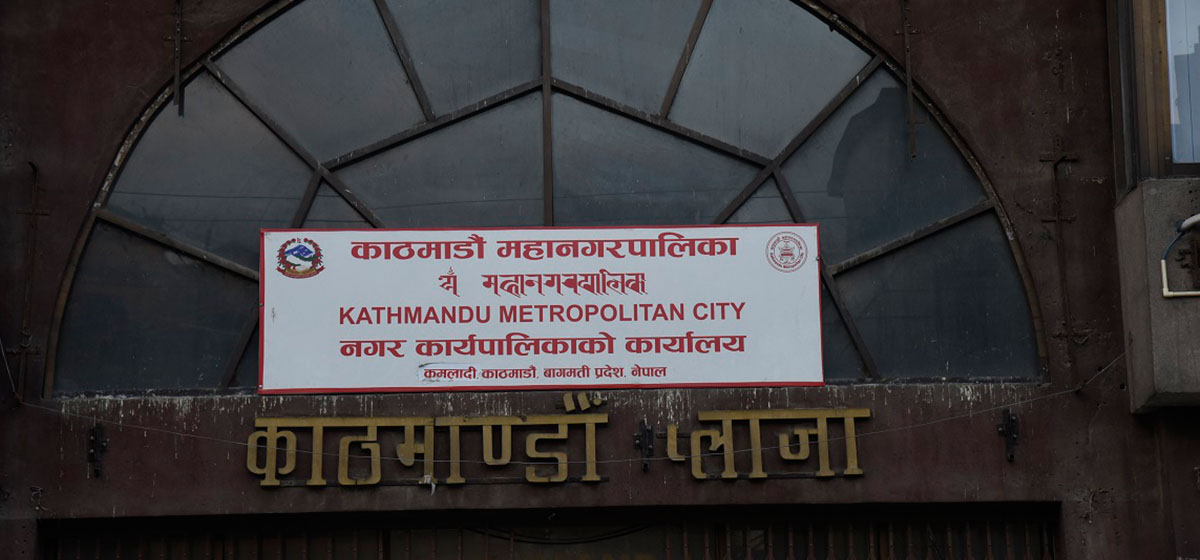
OR
Govt introduces Startup Enterprises Credit Fund Working Procedures to facilitate loans for innovative ventures
Published On: January 30, 2024 08:30 AM NPT By: Sajira Shrestha

KATHMANDU, Jan 30: The government has prepared the Startup Enterprises Credit Fund Working Procedures to provide loans to startups that develop new ideas into enterprises. Joint Secretary of the Ministry of Industry, Commerce and Supplies, Jiblal Bhusal said that the procedure has been approved by the ministry.
A procedure has been devised to provide concessional loans to encourage entrepreneurs with innovative knowledge, thinking, skills and abilities to engage in startup ventures, said Bhusal. According to him, this procedure has been prepared to make the work related to business based on innovation simple, clear, orderly and transparent.
He mentioned that while the startup policy is being formulated and approved to promote startups, the process of amending the Industrial Enterprise Act, 2020 has also been initiated to provide legal arrangements to support and promote startups.
According to Joint Secretary Bhusal, the Startup Enterprise Program will be implemented by the Industrial Business Development Foundation. According to the procedure, the start-up loan fund will be operated by a government-owned commercial bank. In this procedure, arrangements have been made for the bank to provide a loan of up to Rs 2.5 million.
The interest rate of the loan will be 3 percent per annum. A procedure has been prepared to provide loan amount in one installment for loans up to Rs 500,000, two installments for loans up to Rs 1.5 million and three installments for loans up to Rs 2.5 million.
According to the procedure, for the purpose of providing loans to startup enterprises, entrepreneurs who have been registered according to the prevailing law and who have not exceeded seven years until the last date of application, and who have met the criteria mentioned in the procedure, will be eligible for the loan.
The procedure also states that the bank will use the approved business or project as collateral when disbursing the loan. The entrepreneur is responsible for ensuring the insurance of such a business or project.
Loan protection will be facilitated through the loan protection fund. The bank is authorized to charge a maximum service fee of 0.1 percent during the loan disbursement process.
Shekhar Babu Karki, deputy spokesperson of the ministry, mentioned that the procedure has identified 16 sectors for which the government has allocated loans. These sectors include tourism promotion, entertainment and hospitality, agriculture and livestock, forest production, science, technology, information and communication, human health, education, and teaching.
Similarly, areas related to easy and safe transport, automobile, traditional technology, production and service delivery, mining and mineral research and development, household or daily living, and food production and processing have also been recognized under the startup procedure.
Likewise, start-up loans can be taken for areas related to waste management and environment protection, disaster management, alternative and renewable energy and climate change mitigation.
Meanwhile, the projects which are not registered according to the prevailing law and which import goods or services from abroad and sell them are not eligible for the startup loans.
Projects that are blacklisted according to the prevailing laws and registered as holding and investment companies in accordance with the Enterprise Act, 2020 are also not eligible.
What should be the duty of the entrepreneurs?
According to the procedure, the money received from the loan should be spent only for the purpose for which it is prescribed for. According to the agreement, the entrepreneur will also be responsible for paying the loan amount and interest amount.
It is also mentioned that during the monitoring by the regulatory body and the bank, the startup entrepreneur who takes the loan has the duty to provide the necessary information and data, and to submit the progress report of the startup enterprise to the lending bank on a quarterly basis.
If the loan is not repaid within the specified time, the bank can recommend to the concerned agency for action. If the loan is not repaid, it will be counted as a bad loan.
Actions ranging from suspension of the entrepreneur's passport to suspension of movable and immovable property are specified in the procedure. The government can even freeze bank accounts and stop social security allowances.
In the current year, the government has allocated Rs 250 million for startup loans.
You May Like This

Sebon mulls incorporating startups and SMEs in stock exchange market
KATHMANDU, Aug 3: The Securities Board of Nepal (Sebon) has stepped up efforts to bring the startups under the stock... Read More...

How can Startups With Unique Products Create an Audience for Themselves
For entrepreneurs, it’s all about the thrill of creating a product that is revolutionary and doesn’t exist in the market.... Read More...

Platform for business startups and aspirants
‘Monday Morning Coffee Queries Week 69’ was organized at Bodhi Books and Bakes, Chappal Karkhana on Monday. MMCQ is a... Read More...




Just In
- Table tennis Olympics qualification being held for first time in Nepal
- Kathmandu's air quality slightly improves but still unhealthy
- Newari, Tamang to be used as official languages in Bagmati Province
- KMC's skill fair gets 10,000 plus applications for vocational training
- NEPSE plunges 24.58 points, daily turnover falls to Rs 3.79 billion
- Shree Airlines to expand services, offering twice daily Kathmandu-Surkhet flights
- Shift in Nepal’s healthcare trend: 58 percent of women in dentistry
- JSP splits, seven lawmakers to register new party















Leave A Comment